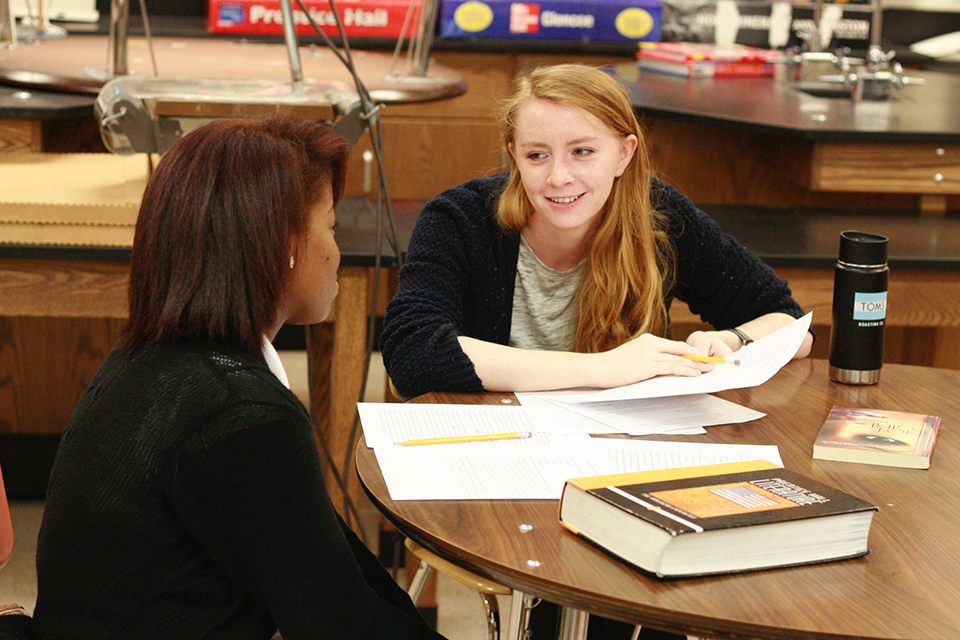‘AS MENTORS, WE WEAR A PLETHORA OF HATS’
“Nah,” I— says, “writing is supposed to be easy for y’all.”
He doesn’t believe me, so I shake my head again, “Ninety percent of the time I don’t want to, don’t feel like it, or try to make excuses. Because mostly, writing is hard. Its work.” There’s a trace of disbelief on I—’s face like “did she really just own up to that?” and eventually our conversation patters off and he goes back to writing.
As mentors, we wear a plethora of hats. Often more than one, or we do a quick change from student to student, because as easy as it would be to say that we are teachers, friends, writers, confidants, sympathizers, or “that person you need to get permission to use bathroom from,” we’re really a great big smorgasbord of all of them.
And, surprise, it isn’t always about the writing. Most of my sessions bounce between some sort of dance class/talent show/spoken word/concert/chill sesh. I’ve found out more about relationships, families, and the inner workings of Broad Ripple than I could have ever imagined. We’ve dissected music, where to eat, and how we feel about school uniforms. When they learned I was new to Indiana a group of girls carefully articulated a map of the best movie theaters and debated, so I wouldn’t have to, whether Church’s was really the best place for some chicken (spoiler alert: it isn’t). I’ve read raps, love songs, poems, comics, sci-fi, dramas, comedies, and more than one musical. Their writing has reached from desert islands to abandoned houses and all the abstract reaches of body and mind. Thus, while a large part of every day is spent writing, we aren’t always talking about it.
Which is why my conversation with I— was so meaningful. Over the short amount of time we’ve worked together I— is one of the kids who is more reticent. Less ready to share or to admit weakness or defeat, alongside his magnanimous personality. Normal, you’d think, for the average fifteen year old, but so many of these students are dancers, singings, actors, and musicians, that their comfort and openness is astonishing.
I’ve learned that they almost always want to share and for you to read their work. They might like some help with a prompt, but lots of times, they’ve got it covered. One of my goals for the semester has been to be a meaningful presence and to contribute something to their understanding and ability to write without inserting myself or altering a narrative. After all, I can’t play an instrument or tap dance, no one wants to hear me sing, and improv makes me weak in the knees, but I do know a whole bunch about writing. The truth is, as much as I’d like to believe that I’m teaching them, my moment with I— is one that I point to and say “I taught him something he didn’t know” because mostly, in the best of ways, they’ve been teaching me.
Colby Ornell is a graduate student in the MFA Creative Writing program.

